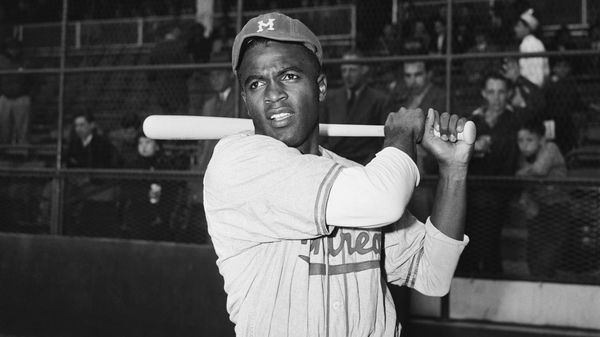

Each spring, Major League Baseball dons the number 42, a powerful symbol of unity and progress. It honors Jackie Robinson, the man who shattered the color barrier. Yet, beneath the surface of this league-wide tribute, complex questions about real progress linger. Recently, a prominent voice from Robinson’s own Dodgers family raised a stark concern. His words challenge us to look beyond the ceremony and examine the current state of the game Robinson fought so hard to change.
Unlike before, this year, Jackie Robinson Day wasn’t just about Robinson. It was about President Donald Trump’s executive order to remove DEI from the Department of Defense. It was about MLB’s half-hearted attempt to really honor Robinson’s legacy in the PR release. But beneath all that, it was about something even more important: Black representation in baseball. And finally, Dodgers manager Dave Roberts spoke up about the harsh reality many of us don’t like to talk about.
“Jackie [Robinson] always talked about having Black managers. He wanted to see Black managers in baseball,” Roberts told NiteCast Media. “ I think that he would be heartbroken to see that all the sacrifices that he made to see that we’re still here.” Roberts, one of only two Black managers in the league, wasn’t here to pass judgment. He was simply calling out a painful truth that too many prefer to ignore. And honestly, it’s about time someone did.
ADVERTISEMENT
Article continues below this ad

Roberts’ comment didn’t occur in a vacuum. A glance at the leadership roles provides the reason behind his statement. There are only two Black managers currently guiding MLB teams. They are Roberts himself, Ron Washington of the Los Angeles Angels. And the Chicago White Sox hired Will Venable, the count has increased to three black managers now. They represent only 10 percent of all managers across the league’s 30 clubs. This lack of representation in the dugout fuels the argument that the progress Robinson dreamed of has not come to fruition in leadership roles decades later.
That trend is even more stark when looking at the players on the field today. The percentage of Black players in MLB reached a high of approximately 18 to 19 percent in the mid-1980s to early 1990s. But that number has fallen drastically since. The number of Black players on Opening Day rosters increased to just 6.2 percent for the 2025 season. Though slightly higher than last year, it remains well below those historical highs, prompting questions about the routes available to Black athletes.
What’s your perspective on:
Is MLB truly honoring Jackie Robinson's legacy, or just paying lip service to diversity?
Have an interesting take?
Recent events cast shadow on Jackie Robinson’s legacy and MLB’s diversity efforts
A troubling context came from recent events. Last month, a webpage describing Robinson’s military service disappeared from the Department of Defense website. Its URL was temporarily changed to include “dei,” associated with movements aimed at diversity programs. Though restored after public outcry, the incident involved minimizing the role of figures like Robinson. Roberts himself has described the moment as a “continued wake-up call,” noting ongoing struggles even around Robinson’s respected legacy.
And it wasn’t the only recent indication that has triggered a wave of worry. Around the same time, MLB quietly removed references to its “Diversity Pipeline Program,” launched in 2016 to help increase front-office diversity. The league said it reviewed programs based on legal compliance in areas where standards are changing, and that its values related to diversity have not changed. Even so, the action was widely viewed as a response to political pressure on diversity efforts. These events served as a complicated context for Roberts’ remarks about progress.
ADVERTISEMENT
Article continues below this ad

Despite all of this, today’s scenario is worlds away from the monumental struggle Robinson faced breaking barriers in 1947. Branch Rickey famously looked for a player with “guts enough not to fight back” against certain hostility. Robinson faced down vicious taunts, like infamous incidents involving the Phillies under manager Ben Chapman, and even physical threats. But he kept going, sustained by supporters like teammate Pee Wee Reese, whose public show of support provided essential backing. This remarkable courage under fire, which won him the Rookie of the Year in that inaugural season, didn’t simply transform baseball; it fueled his lifelong fight for equality off the field.
ADVERTISEMENT
Article continues below this ad
This persistent gap raises fundamental questions about the most effective way to honor Robinson. Roberts says a true tribute demands more, an “everyday sort of mindset and appreciation” for what Robinson stood for and sought to accomplish. His claim that Robinson would be heartbroken forces MLB to confront whether its actions truly align with the full measure of the icon’s lifelong fight against inequality.
ADVERTISEMENT
ADVERTISEMENT
ADVERTISEMENT
ADVERTISEMENT


Is MLB truly honoring Jackie Robinson's legacy, or just paying lip service to diversity?